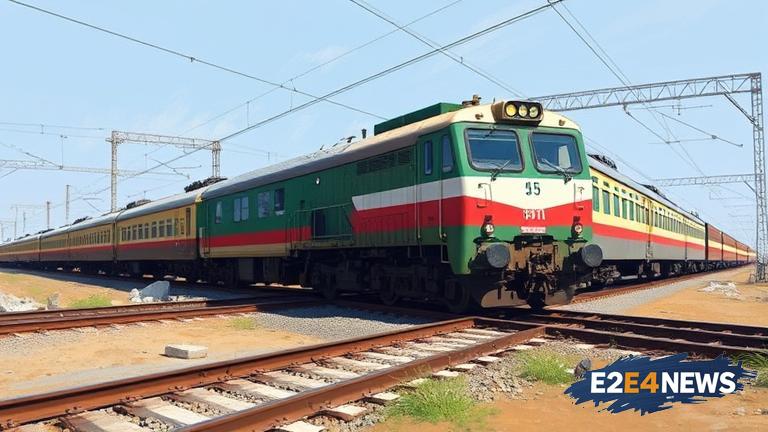The Senate Standing Committee on Railways has recently emphasized the need to accelerate the completion of the ML-1 rail project, a vital component of the China-Pakistan Economic Corridor (CPEC). The project, which aims to upgrade the existing railway track from Karachi to Peshawar, is expected to significantly enhance Pakistan’s transportation infrastructure and contribute to the country’s economic development. The committee, during a meeting, expressed concerns over the slow pace of work on the project and urged the authorities to expedite the process. The ML-1 project is a key part of the CPEC, a massive infrastructure development initiative between Pakistan and China. The project involves the upgradation of the railway track, signaling system, and other infrastructure to increase the speed and efficiency of the rail network. The committee was informed that the project is facing delays due to various reasons, including the non-availability of funds and the slow pace of work by the contractors. The committee members stressed the need for the authorities to take immediate action to address these issues and ensure the timely completion of the project. The ML-1 project is expected to have a significant impact on Pakistan’s economy, as it will increase the speed and efficiency of the rail network, reduce transportation costs, and enhance the country’s competitiveness in the region. The project will also create new job opportunities and stimulate economic growth in the country. The committee was also informed that the project will be completed in three phases, with the first phase involving the upgradation of the track from Karachi to Lahore. The second phase will involve the upgradation of the track from Lahore to Peshawar, while the third phase will involve the upgradation of the signaling system and other infrastructure. The committee members expressed their concern over the slow pace of work on the project and urged the authorities to take immediate action to address the issues. The committee also recommended that the authorities should take steps to ensure the transparency and accountability of the project, including the regular monitoring of the progress and the identification of the bottlenecks. The ML-1 project is a critical component of the CPEC, and its timely completion is essential for the success of the initiative. The project will not only enhance Pakistan’s transportation infrastructure but also contribute to the country’s economic development and regional connectivity. The committee members emphasized the need for the authorities to take a proactive approach to address the issues and ensure the timely completion of the project. The committee also recommended that the authorities should take steps to ensure the participation of the local communities in the project, including the provision of jobs and other benefits. The ML-1 project is expected to have a significant impact on the local communities, and it is essential to ensure that they are benefited from the project. The committee members also stressed the need for the authorities to take steps to address the environmental and social impacts of the project, including the relocation of the affected communities and the protection of the environment. The committee was informed that the project will be completed at a cost of over $6 billion, with the majority of the funding coming from China. The committee members expressed their concern over the high cost of the project and urged the authorities to take steps to ensure that the project is completed within the allocated budget. The ML-1 project is a vital component of the CPEC, and its timely completion is essential for the success of the initiative. The project will not only enhance Pakistan’s transportation infrastructure but also contribute to the country’s economic development and regional connectivity. The committee members emphasized the need for the authorities to take a proactive approach to address the issues and ensure the timely completion of the project.





